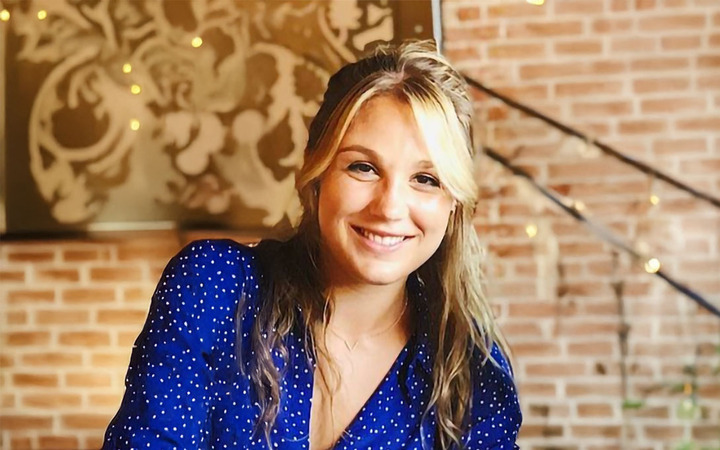
Launched in 1997, the Christine Mirzayan Science & Technology Policy Graduate Fellowship Program is a full-time, hands-on training and educational program that provides early career individuals with the opportunity to spend 12 weeks at the National Academies of Sciences, Engineering, and Medicine in Washington, DC learning about science and technology policy and the role that scientists and engineers play in advising the nation.
Each year, new Mirzayan Fellows join a National Academies unit where they are assigned to a mentor and learn about the world of science and technology policy. As a 2024 Mirzayan Fellow, STPP student Marlotte De Jong recently did a brown bag lunch with students to talk about her experience. She also recently answered some questions about the fellowship, STPP, and advice she has for other students interested in science and technology policy. Here are excerpts from this interview:
Can you briefly summarize your experience and work with the Mirzayan fellowship? How did you decide to apply for it, and what was the process like?
I decided to apply for the Mirzayan Fellowship because, as I am nearing the completion of my PhD, I've naturally been thinking about how I envision my future career. To be completely honest, I have flip flopped throughout the entirety of my PhD career about whether I want to stay in academia or work professionally in the policy space. When I saw the email from the STPP program (which I completed during my Masters at UM), this seemed like an amazing opportunity to "test" out the policy world and learn more about what it really means to bridge the science and policy landscapes.
What were the most interesting, best parts of your experience, and what was challenging?
The fellowship itself was such a formative experience for me. The opportunity to be in Washington DC for 3 months provided not only incredible networking opportunities at a variety of federal agencies and NGOs but also gave me such an interesting look into "how the sausage is made" regarding science policy making. It was definitely a steep learning curve in many ways given the short time frame, but it was totally worth it. By far my favorite thing about the fellowship was the other Fellows! Despite coming from vastly different academic disciplines, I formed such close friendships with so many of the other fellows who were a great source of support and laughter during the three months. It was so amazing to see us all come together to celebrate each other when different fellows successfully defended their dissertations or got engaged or married! I'm still in close contact with a number of them—we even do a weekly virtual coworking session!
The fellowship did have its challenging moments. As a qualitative social scientist, the bread and butter of my research is listening to people talk about their lived experiences. This type of qualitative data is still very new to the work being done at the National Academies and there is a lot of discussion about how to best integrate qualitative research. Given this newness, there is some institutional 'slowness' and pushback against working with communities or bringing in qualitative work, which at times felt very frustrating to me.
Why did you decide to get an STPP certificate, and how has it added to your education and professional development?
I have always been interested in how science gets translated into policy. As someone who does community-engaged work, the ultimate goal of my work is that it will have some meaning, use, or impact for the communities I work with. Policy is one way that science can become useable to the public. But, throughout my work, I have seen many instances in which national or international policies have had severe negative impacts on communities. I was really interested in what accounts for this mismatch - how do policies become so misguided or morph into something so damaging once they are implemented? These questions were a big motivator for me to pursue the STPP program, as I wanted to understand how policy development occurs and how that influences their impact once implemented.
The program has been a huge benefit for me educationally and professionally. From a professional standpoint, I believe that the STPP certificate and its related experiences opens me up to more professional opportunities. For example, I do think that my previous experience through STPP made me a much more competitive applicant to the Mirzayan fellowship. From an educational/research perspective, the courses offered through the STPP program expanded my understanding of so many different issues and have made me a more well-rounded scholar. I have an entire new toolkit of methods, theories, and perspectives that I can bring to my own work, that I truly feel has improved my scholarship.
What are your professional plans going forward?
From my experiences at U-M and through the Mirzayan program, I have realized that the area of science that I am most passionate about is working directly within and in communities. The ability to interact directly with people to listen to their needs and stories is what I find most gratifying. Given that, a career that allows me to prioritize community engagement is what I would like to pursue. I am currently on the job market and am applying for various post-docs that prioritize this kind of work.
Anything else you'd like to add?
I would absolutely encourage people to apply to the Mirzayan program, as it is a great way to experience science-policy making! I am always happy to connect with people who want to hear more about the STPP program or the Mirzayan fellowship!
